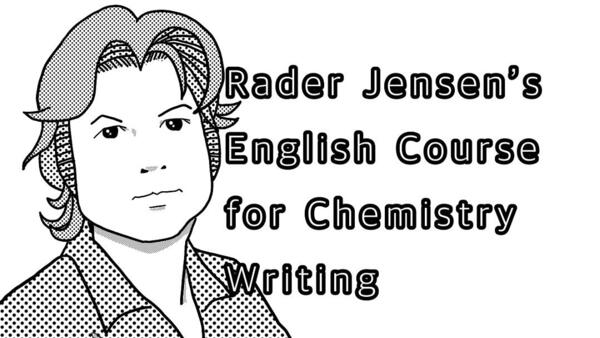CSJ Journals
[化学論文のための英語講座] 第26回:助動詞 must
(English version is here.)
「must」は「しなければならないこと」を述べ、義務の意味を持ちます。「must be」は「確実性が高い」という意味をもち、「他の可能性はない」や「不可欠」の感覚を与えます。他の助動詞(will, can, may, shall)より、さらに確実性が高くなります。
また、他の助動詞(will, can, may, shall)と違って過去形はありません。過去を述べるときは別の言い方が必要なので「had to」または「could not」や「did not have to」(否定)を使います。例文を見てみましょう。
1. The reaction temperature must be maintained at -78 °C to ensure high selectivity.
訳文:高い選択性を確保するには、反応温度を-78°Cに維持しなければなりません。(義務)
2. The unstable intermediate had to be used immediately in the next reaction.
訳文:その不安定な中間体は、次の反応ですぐに使用する必要がありました。(過去の義務)
3. The isomerization must be due to the lability of the oxazolone intermediate.
訳文:異性化は、オキサゾロン中間体の不安定性に起因するに違いありません。(確実性が高い)
4. The isomerization must have been due to the lability of the oxazolone intermediate.
訳文:異性化は、オキサゾロン中間体の不安定性に起因したに違いありません。(過去の確実性、推測)
研究論文では前者の「義務」としては多いですが、後者の「間違いない」としては少ないです。
次に、否定形の例文をみましょう。
5. The reaction temperature must not exceed -78 °C to ensure high selectivity.
訳文:高い選択性を確保するには、反応温度が-78°Cを超えてはいけません。(義務の否定)
6. The silyl enol ether intermediate could not be isolated because it was unstable to work-up conditions.
訳文:シリルエノールエーテル中間体は、後処理条件に対して不安定であったため、単離できませんでした。(確実性の否定、不可能)
7. The silyl enol ether intermediate did not have to be isolated because the reaction product could be taken to the next step without work-up.
訳文:反応生成物が後処理なしで次の段階に進められたので、シリルエノールエーテル中間体を単離する必要はありませんでした。(過去の義務の否定)
次回は「助動詞のまとめ」です。
Must states what has to be done and has a meaning of duty. Must be means high probability, and gives a feeling of no other possibility or indispensible. Moreover, the probability is higher than other auxiliary verbs (will, can, may, shall). Furthermore, unlike these other auxiliary verbs, must has no past tense. When stating the past, a different expression, had to, could not, or would not (negation) is used. Let us look at some examples.
1. The reaction temperature must be maintained at -78 °C to ensure high selectivity.
Explanation: This expresses obligation.
2. The unstable intermediate had to be used immediately in the next reaction.
Explanation: This expresses past obligation.
3. The isomerization must be due to the lability of the oxazolone intermediate.
Explanation: This expresses high probability.
4. The isomerization must have been due to the lability of the oxazolone intermediate.
Explanation: This expresses past high probability.
5. The reaction temperature must not exceed -78 °C to ensure high selectivity.
Explanation: This expresses a prohibition.
6. The silyl enol ether intermediate could not be isolated because it was unstable to work-up conditions.
Explanation: This expresses an inability or impossibility.
7. The silyl enol ether intermediate did not have to be isolated because the reaction product could be taken to the next step without work-up.
Explanation: This expresses exemption from obligation.
At next time, we will discuss the summary of auxiliary verbs.
